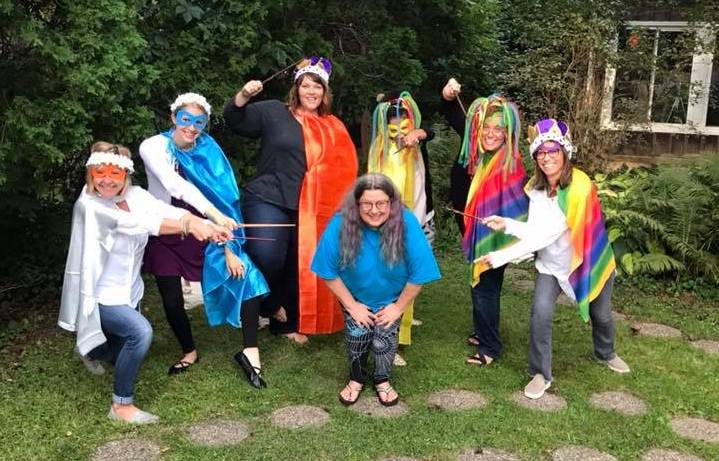Adler’s “Lifestyle” & Play Therapy
Tags: Adler, mental health, play, theory
Hello All,
Pinch me, it’s October and that means pumpkin spiced lattes are back.
I have been so excited to write this month’s newsletter because I just completed my Advance Play Therapy training in Iowa with one of my Adlerian mentors, Dr. Terry Kottman.
I fell in love with Adlerian psychology all over again.
I am not always sure that the people who follow my posts really know the WHOLE Adlerian theory and the power of it. I write a lot of tips and techniques that give you a glimpse, but there is a whole philosophical conceptualization of human behaviour that those nuggets come from. It is this larger understanding that truly holds everything together as one meaningful and rich theory.
In Terry’s Advance Play Therapy class, we dug deep into the Adlerian concept called “lifestyle”.
Let me be the first to say that one of the downsides of Adlerian psychology is that it has a lot of unfriendly terms that are not often used in other psychological theories. “Lifestyle” in this sense is not like being a food or a travel enthusiast. It’s a concept that describes the unique and unifying way in which we go through life. It’s more akin to the concept of personality but on a larger scale.
A person’s lifestyle is established in childhood by the time they are about 6 years old.
Yes, we are born with a certain temperament, but from birth on we begin engaging with the world. We construct ideas about how the world works and where we belong in it. We experiment with ways to fit in and ways to prove our significance. We try on behaviours and experience the responses they evoke from others around us. Then we make very subjective interpretations of that experience.
With all this experience, we create a working hypothesis which helps us answer the questions:
I am…
The world is…
Others are…
Therefore….
One child might believe:
I am bad
The world is harsh
Others are out to get me
Therefore…. I should lay low and hide myself to stay safe.
Another child might decide:
I am bad
The world is harsh
Others are out to get me
Therefore… I should strike first to stay safe.
In Adlerian play therapy, we use the modality of play to create positive change in a child’s lifestyle. We work to create an alliance with the child, understand their lifestyle, help the child have insights into their mistaken beliefs, and re-orient them towards more common sense thinking and more constructive and adaptive behaviours.
How do we do this exactly? We use tools such as tracking, metacommunication, metaphors and many more techniques which are, unfortunately, outside the scope of this newsletter.
So, why do I tell you all this? Because parents need to understand that if your child has a mistaken belief or lifestyle conviction which creates disruptive behaviours, all the logical consequences, encouragement and family meetings are just not going to cut it.
That doesn’t mean Adlerian parenting methods don’t work, of course. It simply means that, if after completing parent education and applying the basics yourself, you are still not making progress that you can hand things off to a counsellor or play therapist. Professionals can better address the issues of lifestyle and private logic.
The weight does not have to fall on your shoulders alone!
With proper interventions, children can change quickly. And, the sooner you create change in a positive direction, the better the life-long trajectory. Don’t hesitate to look into Adlerian play therapy for your children if you have ongoing challenges.
Happy Parenting,







2 Responses to “Adler’s “Lifestyle” & Play Therapy”
Kat
I would love to know where to find an Adlerian play therapist in the GTA!
Alyson Schafer
Glad you are interested! I will be taking clients in 2019 but for now.. check out: https://www.psychologytoday.com/ca/therapists/adlerian/on/toronto